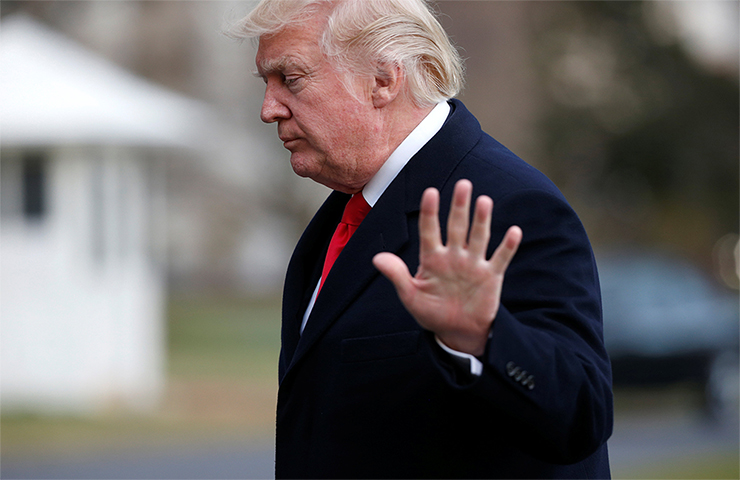Despite being the world’s biggest military power, spending a lot more than the combined defence budgets of China, Russia, Saudi Arabia, United Kingdom, France, India and Japan, the US hasn’t been able to decisively win a single war in last many decades. Afghanistan is in total chaos even after 17 years of continuous warfare; Iraq remains devastated, as is Libya. The US intervention in Syria has done nothing meaningful to achieve peace. All these failures stand in the face of the military might that the US claims to be, but isn’t actually, as the US National Defence Strategy Commission has found out in its latest Congressionally mandated report, questioning if the US military has lost its ability to take on potential enemies, who are said to be gaining fast in military capability, creating a national security crisis, something that can partly be countered through increasing the already high scale defence spending.
While clearly identifying Russia and China as the two chief ‘enemy states’, the report explicitly makes the case for increasing US defence spending, accepting in part that the US military is failing in effectively countering countries like China and Russia, who spend a lot less than the US does. Therefore, the solution, according to the report, is to further increase the current level of spending to change the way America is “losing its advantage in key warfighting areas such as power projection, air and missile defense, cyber and space operations, anti-surface and anti-submarine warfare, long-range ground-based fires, and electronic warfare. Many of the skills necessary to plan for and conduct military operations against capable adversaries — especially China and Russia — have atrophied.”
The US, according to the report, has to be prepared to fight five potential adversaries – China, Russia, Iran, North Korea, and the odd freelance jihadi. But the report says, it has cut its military forces to the lowest point since the end of WWII. “Simply put,” it observes, “the United States needs a larger force than it has today if it is to meet the objectives of the strategy.” And, the larger force requires, first and foremost, a larger budget; hence, the report’s key recommendation “that [the US] Congress [must] increase the base defense budget at an average rate of three to five percent above inflation through the Future Years Defense Program and perhaps beyond.”
This, in view of the report, is essential for maintaining US military and political supremacy in the world, something that requires a US readiness to confront threats and make interventions as and when needed. To quote the report, the US must confront threats “posed by major-power rivals, dangerous regional challengers, and terrorists simultaneously; it must deal with geopolitical conflict, gray-zone, aggression, and instability from one end of Eurasia to the other. It must also prepare for the prospect that the U.S. military might be called into action in a country, region, or contingency that is not currently envisioned.”
This self-declared ‘responsibility’ to intervene is based on the so-called self-presumption about the US “being a global power with global obligations [which]…must possess credible combat power to deter and defeat threats in multiple theaters in a timely manner.”
Supremacy-Syndrome
But as of last two decades, the US has been falling behind in this field, which has led to a very plausible shift away from the US axis in some key regions of the world. Part of this shift has been due to the US’ increasing inability to fulfil its security commitments. To tackle this shortcoming, the report recommends:
that U.S. defense investments [must] emphasize achieving and maintaining a favorable military balance for the United States and its allies against China in the Indo-Pacific region and against Russia in Europe—and that those investments be focused on the 2018 Operational Challenges, represented by the challenges described previously. More specifically, we recommend that defense investments should seek to yield an expanded set of U.S. operational options while constraining those available to China and Russia.
In nutshell, the logic of the report and its various recommendation is to reverse the trend towards a multi-polar world, wherein no single power is able to dominate the world single-handedly. And, as the report assesses, since “Russia and China are capable of challenging the United States, its allies, and its partners on a far greater scale than any adversary since the Cold War”, the need for re-balancing the world under US unilateralism has never been greater than it is now.
On the contrary, if this trend continues and China succeeds in implementing its own objectives, this will signal the end of US supremacy; for, should Beijing become dominant in technological advancement, “it would not only enjoy great economic advantages. It would also gain strong geopolitical leverage over countries that become dependent on Chinese technology; it would reap tremendous military benefits in the form of enhanced awareness and freedom of maneuver, superior command and control, increased lethality, and improved ability to drive future military innovation.”
And, while the goal critically remains keeping sole military, economic and political supremacy of the world, it also makes clear that to achieve this goal, the US should be prepared to intervene as well.
Already, we have seen how the US is mobilizing its military resources over the Kerch strait incident. The latest report goes one step ahead and identifies many key other areas (Taiwan, South China Sea, greater Eurasia) as potential zones where the US will eventually have to militarily confront Russia and China, not because these countries are ‘involved’ in some kind of aggression against smaller countries, but because the increasing power of these countries is challenging US unilateralism and that unless the US decides to firmly counter-act, these countries will come to eventually prevail; hence, the case for making a massive increase to US defence spending to keep the ship of US unilateralism, supremacy and interventions afloat.
Salman Rafi Sheikh, research-analyst of International Relations and Pakistan’s foreign and domestic affairs, exclusively for the online magazine “New Eastern Outlook”.

